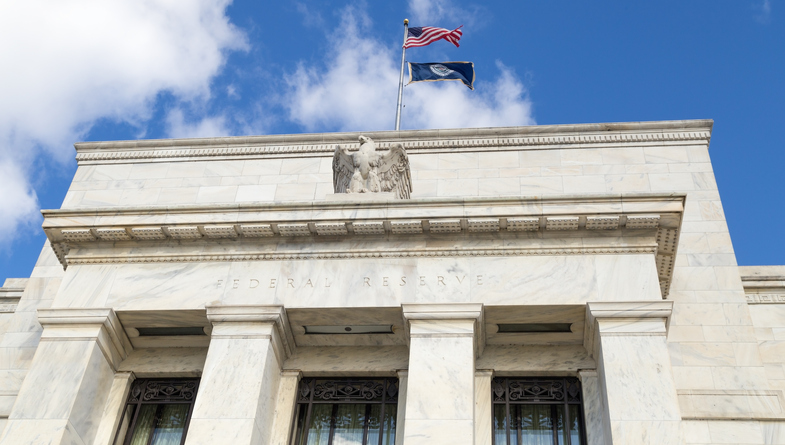The Markets – U.S. equities began the month of February on a very scary note. The market dipped more in one day than ever in history, then did it again the next day. However the S&P 500 index finished the month only down 2.82% leaving it at a year-to-date gain of 2.64% by month end. The technology-heavy Nasdaq Composite performed best, helped by solid gains in the stocks of Apple and networking equipment maker Cisco Systems.
Washington -WCM has written several blogs regarding the new Tax Code so we will not waste time here repeating. Check us out at: www.wsmtexas.com/blog
The Economy – Before I dive off into economics I want to point out some news that is pertinent to us in Texas. West Texas Intermediate crude or “WTI” bottomed out 2 years ago this month at $26.11 per barrel on February 11, 2016. WTI currently trades at $61.02 per barrel.
The big question hanging over the broader markets at the moment is about the direction of interest rates. Everyone seems to agree that interest rates are going up, and the real questions are “by how much?” and “how quickly?” The market volatility we saw in equities, bonds, and commodities in the middle of February—when we saw two “-1000 point down days” on the DJIA—is believed to have been driven, in large part, by growing concern over rising inflation and rising interest rates. After many years of very low interest rates and near-zero inflation, the tide seems to be turning. Inflation itself erodes value, and the Fed’s effort to curtail inflation—raising interest rates—can have an additional negative impact on the market. People are focused on the possibility that the era of “easy money” may be coming to an end, which is resulting in more market volatility and a concern about the potential for a broader market correction.
Aside from inflation, the month’s economic data were mixed. Retail sales fell 0.3% in January, the largest drop in nearly a year. December sales were also revised downward. Weekly initial jobless claims rose slightly but remained near historic lows. Industrial production also fell slightly in January, weighed down by a decline in mining output. However, corporate profit growth seemed to be continuing to fire on all cylinders. Data and analytics firm FactSet revised its estimate of fourth-quarter profit growth for the S&P 500 further upward, to 15.2% (on a year-over-year basis)—its best pace since late 2011. Perhaps reflecting the balance between higher inflation data and mixed economic signals, the yield on the 10-year Treasury note touched a new four-year high of 2.93% but ended the month at 2.83%.
Since Warren Buffett releases his annual shareholder letter, well, only once each year, we thought it would be right and just to include some of the wisdom shared by Mr. Buffett, who is widely considered the greatest investor of all time. Here is an appetizer from the letter……..
Headlines – February 26, 2018 Warren Buffett released his annual shareholder letter. Here are several memorable quotes from the letter; https://finance.yahoo.com
In his annual letter to Berkshire Hathaway (BRK-A, BRK-B) shareholders, legendary investor Warren Buffett muses on the M&A environment, his aversion to leverage, opportunities to buy during downturns, and his disregard for fees charged by active managers.
1. “If Wall Street analysts or board members urge that CEOs consider possible acquisitions, it’s a bit like telling your ripening teenager to be sure to have a normal sex life.”
Buffett bemoans the acquisition frenzy on Wall Street that’s been fueled by extraordinarily cheap debt, making it difficult to find possible acquisitions at a “sensible purchase price.”
2. “But Charlie and I sleep well. Both of us believe it is insane to risk what you have and need in order to obtain what you don’t need.”
Buffett and Charlie Munger’s aversion to using leverage may have “dampened” their returns over the last 53 years, but the long-term focused investors don’t seem all that bothered by it.
3. “Charlie and I never will operate Berkshire in a manner that depends on the kindness of strangers — or even that of friends who may be facing liquidity problems of their own.”
When making investment decisions, Buffett and Munger have focused on building Berkshire in a manner that can withstand major economic downturns without the need for government bailouts.
4. “Charlie and I view the marketable common stocks that Berkshire owns as interests in businesses, not as ticker symbols to be bought or sold based on their ‘chart’ patterns, the ‘target’ prices of analysts or the opinions of media pundits.”
Buffett and Munger don’t rely on the expensive research produced by Wall Street firms to make investment decisions.
5. “When major declines occur, however, they offer extraordinary opportunities to those who are not handicapped by debt.”
Leverage might boost returns when prices go up, but it’s devastating when prices go down, which is when solvent investors are able buy cheaply.
6. “Though markets are generally rational, they occasionally do crazy things. Seizing the opportunities then offered does not require great intelligence, a degree in economics or a familiarity with Wall Street jargon such as alpha and beta.”
Amateur investors who put their money in low-cost index funds can beat the so-called ‘smart money’ hedge funds charging extraordinary management and performance fees.
7. “Performance comes, performance goes. Fees never falter.”
Buffett has long been a critic of the high fees charged by hedge fund managers, especially when they continue to charge those fees during periods of poor performance.
8. “Investing is an activity in which consumption today is foregone in an attempt to allow greater consumption at a later date. ‘Risk’ is the possibility that this objective won’t be attained.”
Buffett learned that so-called “risk-free” bonds were a ‘far riskier’ investment than a long-term investment in common stocks.
Have a question? Let me know! Email me at kcompton@wsmtexas.com.

